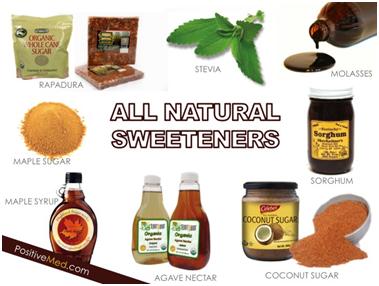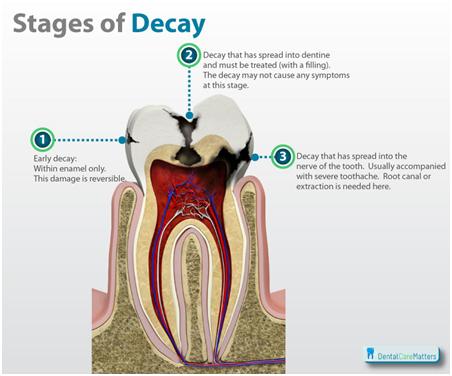With Halloween on the horizon, many parents (and adults simply concerned about their own general health) have a wary eye on the amount of sugar they’re about to be inundated with. With the average child hauling home and potentially consuming up to 3 cups of sugar in their Halloween treats, there’s definitely cause for concern – especially when it comes to oral health. But with all the alternative sugar products out there, it can be confusing to understand how these various sweeteners impact your teeth (if at all). Below is a handy guide to some of the most prominent sweeteners out there and what havoc they can wreak on you or your child’s oral health.

Sugar
Good old fashioned cane sugar is one of the leading causes of tooth decay. After consuming sugar, a sticky plaque begins to form and stick to your teeth. The bacteria living in your mouth love to burrow into this plaque and actually gain energy from the broken down sugar particles. This leads to acid production which can attack your teeth and potentially lead to cavities. The trick to combatting sugar’s impact on your oral health is to brush and floss regularly, particularly after meals or snacks. Another option is to eat low-sugar or no-sugar items. The question becomes, however – what impact do sugar alternatives have on your oral health?

Artificial Sweeteners
This category of sugar alternatives are usually man-made creations, although they can be derived from sugar. They include formulas such as aspartame, sucralose (Splenda) and saccharin (SugarTwin), among several others. Artificial sweeteners can also extend to sugar alcohols, which can either be derived from fruits and vegetables or manufactured. On the plus side, sweeteners like aspartame have been shown to have no impact on tooth decay. That being said, many people have reported negative reactions to artificial sweeteners, including headaches, dizziness or muscle pain. Mitigating these side effects is far more important than choosing artificially sweetened items for the sake of your oral health.

Natural Sweeteners
This category of sweetener includes agave nectar, honey, maple syrup, molasses, and fruit juice concentrate, among others. Be wary of marketing ploys to convince you a product is naturally sweetened: even sweeteners derived from natural sources often go through a processing and refining process that can put them on par with sugar for the negative impact they can have on your physical and oral health. Natural sugars break down in the same manner as refined white sugar, meaning plaque build-up and acid production can quickly become rampant without proper oral care. A sub-category called ‘novel sweeteners’ applies to products like Stevia, which combine various types of sugars for a sort of hybrid manufactured natural product. Studies related to novel sweeteners and oral health have proved inconclusive, meaning your best bet is to limit overall consumption.

Slaying Sugar’s Side Effects
Whether you’re consuming natural, refined, processed, or artificial sugars, it’s important to recognize that an excessive consumption of any type of sweetener will have an impact on your overall health. That being said, from a dental health perspective, one of the worst things you can do for your mouth is consume lots of natural sugars, multiple times per day. Your first step is to understand all of the types of sugar out there and how they may be labelled on whatever you’re consuming, particularly with processed foods. Make a concerted effort to reduce your overall sugar intake and you’ll lower your risk for tooth decay and cavities. And if you do need that sugar fix, try to limit it to one sitting per day, then take care shortly afterward to clean away plaque and bacteria through a mouthwash, brushing your teeth or flossing. Preventative action is essential to ensure your teeth aren’t permanently impacted by decay.
Types:
http://www.life123.com/parenting/toddlers/child-nutrition/tooth-decay.shtml
http://www.webmd.com/oral-health/diet-oral-health
http://articles.mercola.com/sites/articles/archive/2011/10/29/sugar-free-food-linked-tooth-damage.aspx
http://www.brainerddispatch.com/content/kids-consume-3-cups-sugar-and-4800-calories-halloween
http://www.elmhurst.edu/~chm/vchembook/548toothdecay.html
http://www.mayoclinic.org/healthy-living/nutrition-and-healthy-eating/in-depth/artificial-sweeteners/art-20046936
http://www.fitday.com/fitness-articles/nutrition/healthy-eating/aspartame-is-cutting-calories-worth-it.html
http://www.canndentistry.com/naturally-sweet


